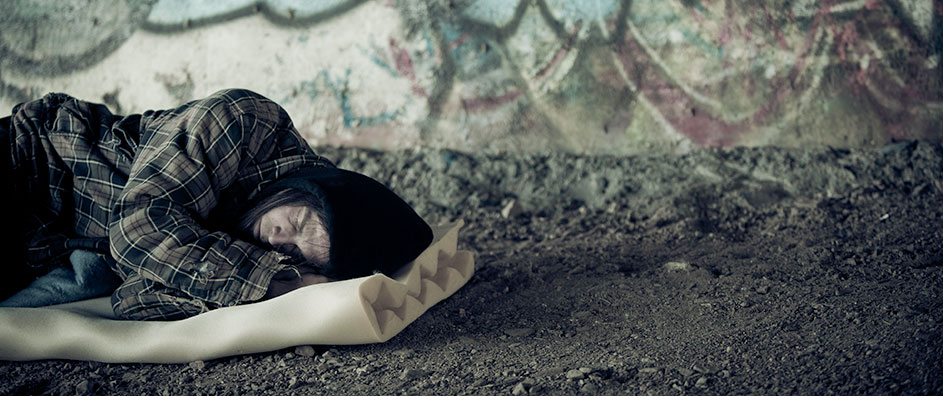In contemplating the profound implications of poverty and homelessness, one might ponder: What if every individual could access the fundamental necessities of life, such as food, shelter, and healthcare? This inquiry not only highlights a pervasive societal issue but also challenges us to reflect on our role within that societal structure. As Bahá’ís, we are called to examine these matters through the lens of spiritual teachings and to act accordingly.
The Bahá’í Faith offers a holistic perspective on poverty and homelessness, emphasizing the interconnectedness of spiritual and material well-being. The teachings articulate that true prosperity is not merely a financial state but encompasses emotional, spiritual, and intellectual dimensions. As we delve into the essence of Bahá’í teachings related to these urgent social challenges, it becomes evident that the responsibility of alleviating poverty and providing service is not solely a governmental or institutional task—it is a communal obligation rooted in the principles of justice, compassion, and unity.
Understanding Poverty and Homelessness
Poverty manifests itself in multifaceted ways, encompassing not just economic deprivation but a broader deprivation of dignity, opportunity, and hope. Homelessness, as a byproduct of systemic inequities, starkly exemplifies the intersection of various societal failures. The Bahá’í teachings assert that all individuals possess inherent worth; thus, the denial of basic needs is a violation of divine intent. Wealth and prosperity should be utilized not merely for personal gain but as a resource for universal progress.
Spiritual and Moral Obligations to Serve
Service to humanity is a cornerstone of the Bahá’í Faith. The teachings advocate for a proactive approach to service—an encouragement to not only support those in precarious situations but also to actively engage with communities to identify sustainable solutions. The world is replete with opportunities to make a difference—whether through volunteering, mobilizing communal resources, or educating others about social injustices. Every act of kindness, no matter how small, contributes to the greater fabric of society.
Moreover, the Bahá’í teachings emphasize the significance of collective action. Individuals are encouraged to collaborate, creating networks of support that can effectively address poverty and homelessness. This collective approach transforms service from a solitary endeavor into a shared obligation, reinforcing the notion of unity amongst diversity. In this synergy lies the potential for substantial transformation.
Addressing the Root Causes
To combat poverty and homelessness effectively, it is imperative to address the underlying root causes, which often include systemic inequality, lack of access to education, and social isolation. The Bahá’í perspective urges society to move beyond superficial charity to fostering structural changes that promote equity and inclusion. This can be achieved through advocacy for policies that enhance social welfare systems, create affordable housing, and provide educational opportunities for marginalized groups.
Furthermore, the teachings encourage a shift in societal attitudes toward those experiencing poverty and homelessness. It is crucial to understand these individuals not as faceless statistics but as members of our human family, deserving of compassion and respect. This paradigm shift can reduce stigmatization, paving the way for more integrated social solutions and a more empathetic society.
Engagement with Local Communities
In considering how to embody the essence of service, community engagement emerges as a vital component. Bahá’í communities are called to assess local needs and respond authentically, fostering an environment where everyone has the opportunity to contribute. Initiatives might include establishing food banks, shelters, job training programs, or mentorship plans—all designed to uplift those in need and promote holistic well-being.
It is essential to embrace diversity within these community efforts, recognizing that varied perspectives and experiences contribute to more effective strategies. The act of serving should not be seen as a top-down approach but rather as a collaborative process through which everybody has a stake in creating a more just society. The Bahá’í teachings voice the importance of consultation as a method for making decisions, ensuring that all voices are heard and considered in the efforts to address social challenges.
Fostering a Spirit of Unity
Unity, a key tenet of Bahá’í teachings, serves as an indispensable element in combatting poverty and homelessness. Promoting a spirit of unity transcends geographical, racial, and socio-economic boundaries. It challenges us to recognize our shared human condition and the interdependence of our lives. As we engage in service, we inspire others to do the same, creating ripples of change that can resonate far beyond individual acts of kindness.
In light of today’s global challenges, there is a pressing need for a paradigm shift—moving from a culture of individualism to one that values collective responsibility. The Bahá’í Faith invites individuals to participate actively in dismantling barriers to equity and access, viewing service not as a temporary solution but as an integral element of one’s spiritual practice.
A Call to Action
Ultimately, the Bahá’í teachings on poverty, homelessness, and service present a clarion call to action. It implores each individual to critically assess not only their capacity to serve but also the systems in place that perpetuate inequality. We must embrace the challenge of changing not just our immediate environments but also the societal structures that maintain disparities.
By fostering a deep-seated commitment to service—rooted in Bahá’í ideals—we can contribute to a legacy that transcends individual efforts, harnessing the power of collective action to create a world free from the blight of poverty and homelessness. With determined hearts and united efforts, we can strive for a future where every individual is empowered to thrive.
